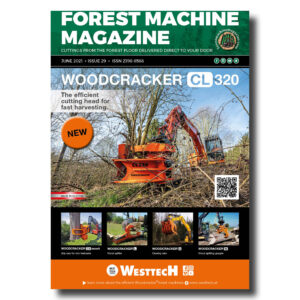Biomass Energy produced from wood is a sustainable source of fuel for producing electricity and heating.
People have used biomass energy since the earliest “cave men” first made wood fires for cooking or keeping warm. Today, biomass is used to fuel electric generators and other machinery.
The Government set a target during 2020 of producing 20% of the UK‘s energy from renewable sources. They also implemented a Renewable Heat Incentive (RHI) scheme in April 2014 for home owners and private or social landlords (excluding new houses unless self-built) to encourage the installation of biomass boilers. Payments are made quarterly over a seven year period, with the return based on the amount of renewable heat generated by the heating system. Domestic customers can apply to join the RHI scheme up until March 2022.
The non-domestic RHI is open to industrial, commercial, public sector and non-profit organisations with eligible installations throughout Great Britain. This includes small businesses, hospitals and schools, as well as district heating schemes where one installation serves multiple homes. For this version of the scheme, payments are made quarterly over a 20 year period and non-domestic customers can apply up until March 2021.
Here we take a look at three separate Biomass companies all using different types of Chippers working throughout Scotland
Angus Biofuels
Angus Biofuels, a renewable energy company established in 2007, is owned by the Watson family and based just outside of Forfar, the county town of Angus in the North East of Scotland. This company is a real family affair and is owned by Bill Watson, his wife Tracy, and their two sons Steve and Angus. The day-to-day running of the company involves a further ten staff members, including Steve’s fiancée Feren Ramsay. The company offer a wood chipping service throughout Scotland with their two Albach Diamant 2000 chippers. They supply and deliver woodchip from G30 to G100, wood pellets, and kiln dried hardwood logs throughout the Angus area. Angus Biofuels will purchase and harvest standing timber on a price per tonne basis and will undertake thinning, clearfell, and brash recovery operations with their Komatsu 901XC harvester alongside their Komatsu 830 and John Deere 1510E forwarders.
I meet with Steve Watson, who gave me a tour of the premises and let me know more about Angus Biofuels and the many changes that have been made since the company first started. The timber harvesting equipment has been updated and the chipping is carried out by the two Albach Diamants, one purchased in 2017 followed by the other in 2019. Their first harvester was a Harvadig excavator with a Keto 150 head and a Rottne F10 forwarder (both purchased from Jas P Wilson at Dalbeattie). Their first chipper was a Jenz 561 and this was followed by a Doppstadt DH811.
As Steve pointed out, the Albach chippers produce very high quality chip and are infinitely productive machines. Keeping good stock levels is important to the company and during our visit around 8,000 tonnes of 3m chip was stacked in the yard. The east coast generally has a drier climate than the west and there is usually a breeze, which creates optimal conditions for air-drying the stacked wood. Angus Biofuels supply about 10,000 tonnes of biofuel to customers throughout Angus each year and their harvesting team supplies a good proportion of the timber required to keep their biomass customers happy. In addition to chipping their own timber in the yard both Albachs carry out contract chipping throughout Scotland, processing in excess of 200,000 tonnes last year.
The Albach is a unique design amongst mobile chippers – the 4WD vehicle and chipper is powered by a 16.1 litre Volvo engine with independent front and rear axle hydro-mechanical drive, as well as four-wheel steering which provides unparalleled manoeuvrability. It has a two-speed power-shift transmission with an integrated ABS braking system and can travel at speeds of up to 45mph on the highway.
The Diamant is a self-contained unit that is ready to chip in less than 30 seconds at the press of a button. The hydraulic legs are lowered for added stability, the in-feed is opened out, and there are two vertical side in-feed rollers for preventing blockages when processing full trees. Given that the spout can rotate through 240° with a height adjustment of 3.1m, it is easily positioned for different sized trailers.
The cabin rises to 4.8m while chipping, which in combination with the 180° rotating seat provides operators with 360° vision. It is a spacious, comfortable and exceptionally well laid out workplace which can be equipped with a fridge and microwave oven. There is good access for servicing and maintenance and the hydraulic
hoses are well routed, allowing individual hoses to be changed easily. Moreover, the chipper blades can be changed easily and all the wear parts are made from hard-wearing HARDOX steel.
Steve demonstrated the Albach by chipping some large diameter hardwoods and the performance was impressive; with a never-ending stream of chips leaving the spout, 100 tonnes an hour is easily achievable.
Also in the yard is a chip dryer capable of holding 45 tonnes of woodchips and drying the chips to the required 30% moisture content, a two megawatt biomass boiler (which is the source of heating for the chip dryer), and a container dryer for the hardwood firewood.
All maintenance schedules are strictly adhered to and the equipment is kept clean, in excellent condition and stored under cover when not in use. The Watson family are fiercely passionate about renewable energy and sustainability and offer a thoroughly professional service to their customers and clients. They are a forward thinking company and deserve continued success. On taking an aerial shot of the yard, it was unsurprising to see a huge array of solar panels on the rooftops supplying the majority of the company’s electricity.
-
That’s a remarkable amount of work hours for a single machine, the Norcar 600 owned by Erkki Rinne is taken well care of, it even has the original Diesel engine.
-
Kieran Anders is a forestry contractor working in the lake district. His work involves hand cutting and extracting timber using a skidder and tractor-trailer forwarder.
-
It is not possible to eliminate chain shot, but there are simple steps that can be taken to reduce the risk.
-
Arwel takes great pride in the fact that the mill has no waste whatsoever, “the peelings are used for children’s playgrounds, gardens and for farm animals in barns in the winter and the sawdust has multiple uses in gardens and farms as well.
-
Timber hauliers need to encourage young blood in, and also look after the hauliers we have, we need make the sector a safe and positive place to work.
Find Us On
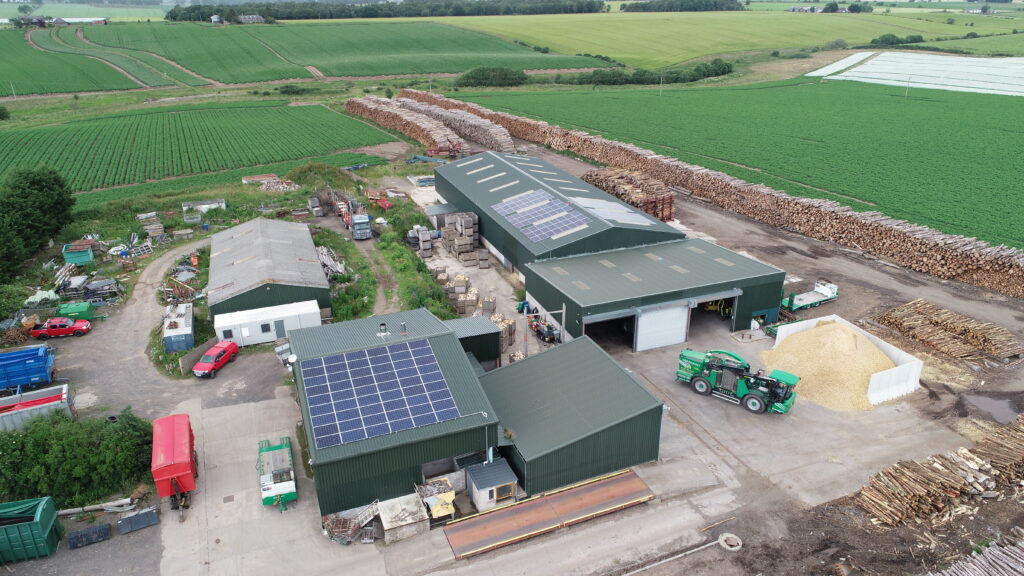
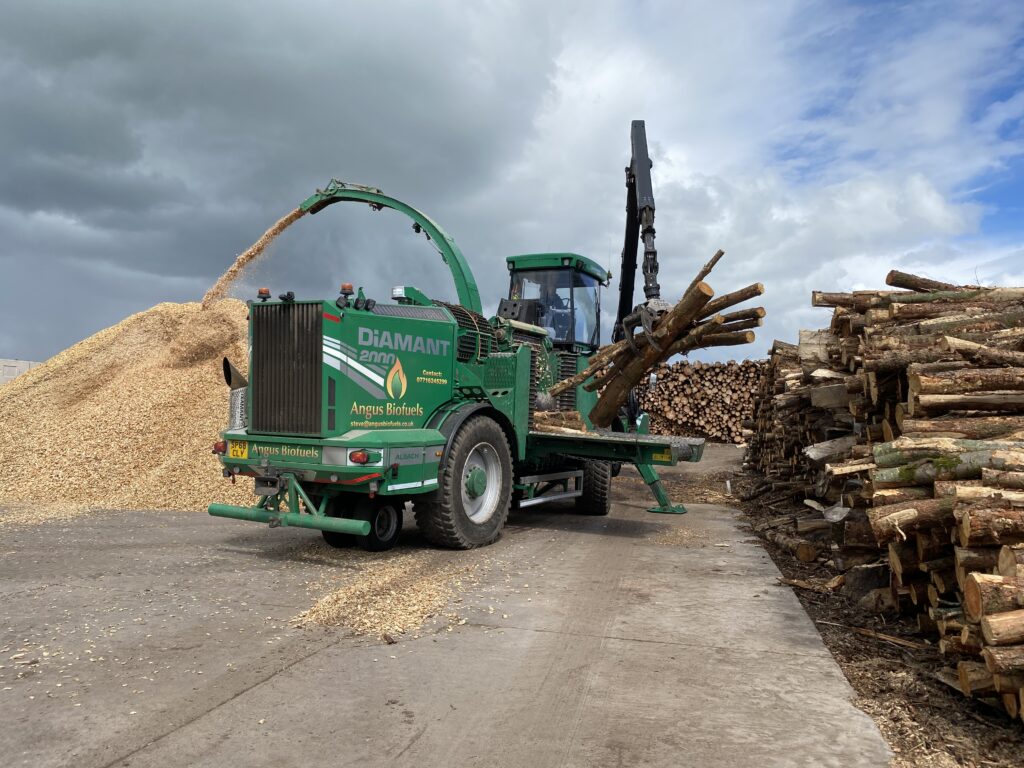
NewFuel
I met with Hamish Oliphant at his premises near Turiff in Aberdeenshire. Hamish founded and owns NEWFuel Ltd, which supplies high quality, seasoned woodchips for biomass heating systems and provides a mobile wood chipping service for customers with their own woodlands in the North East of Scotland. Hamish started NEWFuel in 2008, chipping with a tractor mounted Heizohack and delivering the woodchips locally by tractor and trailer. In 2014 he moved to his current location, which is perfect for NEWFuel’s requirements.
As we drove into the large yard I was struck by how clean and tidy everywhere was; no woodchips and bark blowing around, nice new clean concrete floors everywhere you looked, well maintained buildings, immaculate equipment and everything put back in its place when not in use. It is fantastic to meet someone like Hamish who takes such pride in everything he does and I imagine his customers feel the same way with regards to the quality of the products he supplies.
After introducing ourselves to Hamish and his friendly canine companion, Fergus, I could hear some noise coming from the rear of a large storage building so we made our way round to investigate further. We were greeted by a sweet sounding Jenz HEM 561Chipper mounted on a Scania G450. This was being fed by a Palfinger Q130LD loader, while collecting the chips was a Valtra T151 coupled to a Fliegl push off Trailer. This chipper was bought in 2016 to replace the tractor mounted Heizohack chipper. Hamish decided on the Scania as the truck base for the Jenz following on from the previous Scania bought for a delivery vehicle. Jenz fitted the self powered chipper to the chassis at their factory before it continued its journey to Outreach Ltd, where the Alucar de-mountable crane console was fitted on the rear for the Palfinger Q130LD loader. The Palfinger Q series LD is a heavy duty loader which has been designed with chippers in mind as it is more than capable of withstanding continuous and arduous use.
The chipper operator was Stuart Morrison and he has been working with Hamish for the last six years. As well as being competent and smooth, he also understood the capabilities and limitations of the equipment he was using. I thought the grab wasn’t closing properly but Hamish explained that Stuart was trying to remove most of the loose bark prior to chipping and ensure no foreign objects were passing through the chipper. The chipper hardly dropped a rev when in use as Stuart would place about half of the timber in the FG53 Grab into the infeed rollers, meaning the chipper was never under heavy load and provided a good, continuous supply of woodchips for Matt Newman’s waiting trailer. Matt runs the site and drying facility with military precision and takes great pride in the appearance and cleanliness of the premises. Both Matt and Stuart maintain the machines and equipment. Once filled,
Matt drove the Fliegl push-off 20 tonne trailer which was towed behind the forestry guarded Valtra tractor (also used with a forwarding trailer if needed) round to the drying area. As Matt began to reverse, I noticed that the trailer’s rear wheel steering was working when going backwards as well and I saw it was cleverly activated by means of a hydraulic ram fitted near the drawbar. He unloaded the chips in the hot air drying area, which will hold in the region of 200m³ of woodchips and uses standard batch Grain Drying Technology. It is heated by two 190KW Biotech boilers and the hot air is blown through under floor vents which can also heat the workshops on cold winter days. There are three augers which travel up and down and side to side to keep all the woodchips continuously rotated to speed up the drying process and provide a more consistent moisture content. The round wood is stacked in the yard until the moisture content is down to 30-40% moisture content. The chips are then stored prior to delivery.
Back on the chipper Stuart allowed me to explore his office: the 130 LD top of the range Epsilon EPS Cab. The vision is good and the controls for the loader and chipper are well laid out and easy to use (although I did feel a bit like Captain Kirk at the helm of the Starship Enterprise until Stuart showed me what the screens and switches were for). The seat itself was comfortable and it was refreshing to see mini-lever joysticks, which has a big impact on reducing operator fatigue during large volume chipping shifts. A Mercedes 490hp OM 471 LA engine acts as a separate power source for the Jenz HEM drum chipper and stems up to 56cm in diameter can be accommodated. Hamish opted for a drum chipper over a disc chipper as the drum gives a better chip quality and is quieter. The HEM 561 is a precision open drum chipper with 20 blades, and normally gets around 800 tonnes of chip out of a set of blades before replacing them, there is not a big difference in price over re-sharpening. There are two fuel tanks a dedicated 450l tank for the Jenz and a 1000l shared by both the Jenz, and Scania. It will chip around 35-40 dry tonnes per hour with the Jenz using 50-60 litres of diesel per hour.
For delivery, NEWFuel owns a Scania R580 Tridem Chassis fitted with a rear steer and lift axle 32 tonne unit which is highly manoeuvrable in tight spaces and can unload the woodchips by either the walking floor in the container or the blower attachment at the rear of the truck. At this point I was starting to expect the unexpected; I have rarely come across anyone who is as thorough and prepared for almost every eventuality as Hamish. He explained that Sellers made the body before it was fitted by Outreach – it is a de-mountable body and the wagon, which is plated for 44 tonnes, can be fitted with a trailer. It has the Alucar rear de-mountable crane console for the Epsilon loader, the hydraulics were a challenge for Outreach as the walking floor requires different hydraulic demands from the blower hydraulic motors. Outreach overcame this issue by fitting a tandem hydraulic pump with separate spool valves and an additional hydraulic powered oil cooler. Looking underneath, I spotted something dangling down and it was the automatic snow chains fitted by Outreach. Although Hamish had originally used a tractor and push-off trailer for delivery, he has since found the Scania with its 40m³ load to be a much more economical and time saving delivery method.
Nearby, Hamish has his own mature woodlands as well as other woodlands in the region and some of his own forestry equipment is dedicated to dealing with windblown trees. Under a large tarpaulin I noticed a 70-65 Fiat Crawler Skidder which has a Forest Machine Services logging blade and guarding with the five tonne Igland three point linkage winch. Furthermore, in the next building, I spotted, a very tidy for its age and hours, Valmet 860.1 forwarder (I had one of the first new type Valmet 860s in 1999 and it is still going strong to this day, but that’s a story for another day), and opposite the forwarder was a Botex trailer with a 560 Botex loader which is pulled behind the Valtra tractor. Hamish has had electric mini-lever controls fitted to the Valtra’s seat for operating the Botex loader on the trailer, while the building also contained a mini-digger and an assortment of other equipment to make life easier when working in the forest. Regardless of where you go at Hamish’s premises, everywhere is clean, tidy and in immaculate condition and all his equipment is maintained to the highest standards.
I was really struck by how this venture is not merely about being a successful business as he aspires to be known for the quality of his woodchips. They are tested regularly for quality control and compliance with CEN TC/335 and ONORM M7133 standards. Good quality woodchips reduce downtime and minimise system maintenance for his customers. Hamish will only use good solid wood with no rot from locally sourced and managed sustainable woodlands. Every load of woodchips has a fuel declaration certificate so the customer knows the origins, type and specification of the wood they are burning. Hamish, Stuart and Matt are all trained to the highest standards and with Lantra accredited training on the fuel they produce.
This is a very well thought out professional company which only uses the best equipment available and it was a pleasure to visit them as Hamish and his staff were very open and informative with any questions we had.
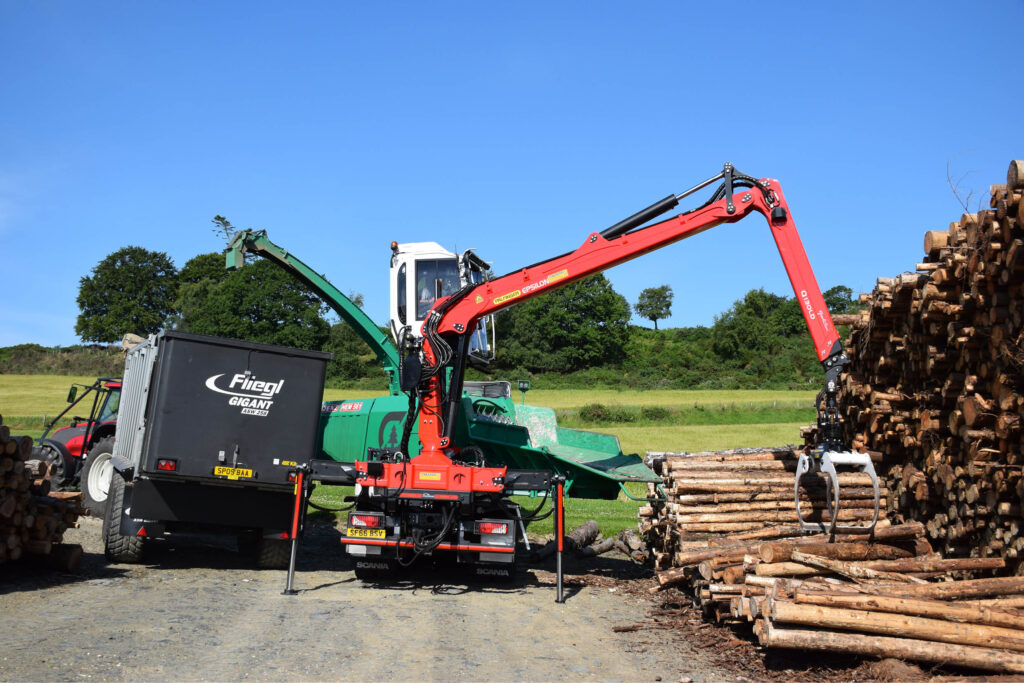
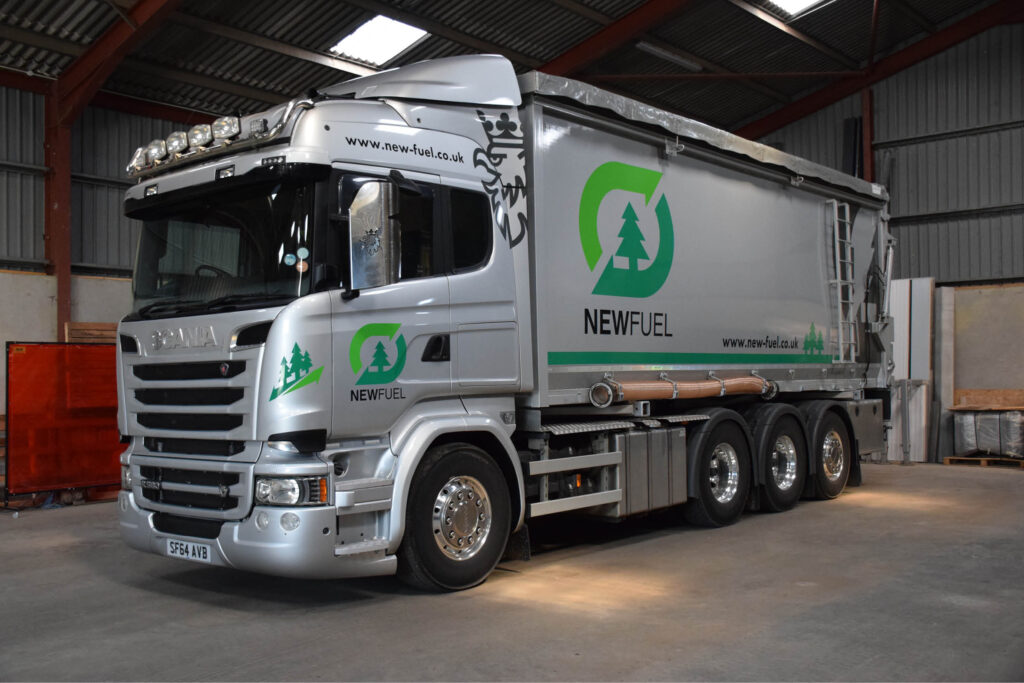
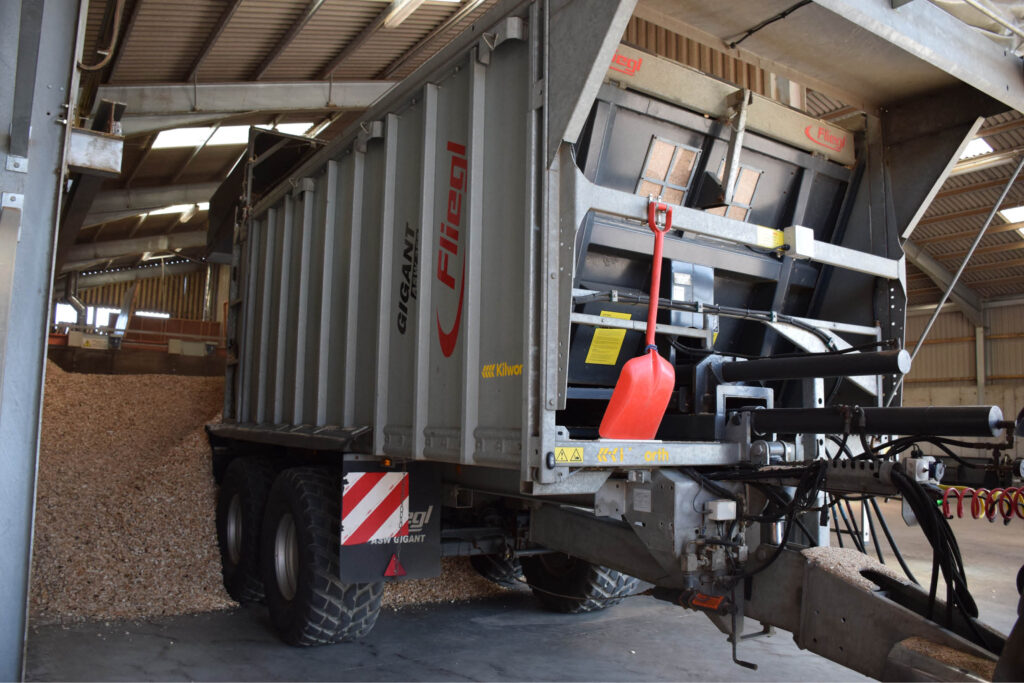

Pentland Biomass
Pentland Biomass ‒ a subsidiary of Pentland Plants Ltd‒a family-owned and -run garden centre, started over fifty years ago by Joseph Spray. Today the second and third generation of the Spray family take care of the businesses. Joseph’s son David and his wife Hilda still enjoy propagating plants for selling in the Garden Centre, while their daughter Carolyn manages the Garden Centre, and their son Richard manages Pentland Biomass.
I met with who showed me around around and explained the benefits of the Biomass boiler system he was using.
It all started in 2006 when they installed two megawatts of woodchip boilers which supplied the heating and hot water for the 5½ acre Loanhead site near Edinburgh. They were previously using an oil fired boiler, and it took around one million litres of kerosene each year to supply the same service. It has proved to be a wise investment for the Spray family; the cost of Kerosene has drastically increased since installing the boilers, and within two years the fuel savings had paid for the purchase and installation costs. It’s not as easy as it sounds; it would require 2,500 tonnes of seasoned woodchips to keep the boilers working. Back then commercial chipping was in its infancy, most of the chippers in the UK were small-scale and used by tree surgeons and local authorities for disposing of branches and woody weeds.
Richard purchased a whole tree chipper and began searching locally for round timber that would suit his needs. The premises are in a perfect location as the wood storage yard is situated at the bottom of the windy Pentland hillside‒perfect for seasoning timber.
The east coast of Scotland benefits from a drier climate than the west coast, and this aids the seasoning process. Normally it takes seven to eight months of air drying to get the timber down to 25% moisture content. You need a substantially high volume of timber to produce 2,500 tonnes of seasoned wood. Spruce trees grown on wet areas can lose more than 35% of their weight after seasoning. Richard recalled it took time for their accountants to come to terms with this as they imagined there must be a massive stack of timber that had been purchased and not sold!
The introduction of RHI (Renewable Heat Incentive) payments from the Government encouraged others to install biomass boilers and Richard received many enquiries for supplying woodchips and pellets to domestic and commercial customers. His chipper was working full time and was in high demand from customers wanting him to chip their timber on site.
The original boiler was replaced with three new boilers. Two are for heating and hot water at the Loanhead site, and one is for drying the woodchips. Pentland require 3,000 tonnes of seasoned woodchips per year which requires 4,000 tonne of roundwood to produce. The biomass dryer for the woodchips can reduce the moisture content of fresh woodchips to 25% in a 24 hour period.
Pentland Biomass is a very efficient business now; they own two articulated timber trucks for delivering timber to their stockyard. Richard likes to keep a stock of around 12,000 tonne on hand. Two walking floor articulated trailers deliver larger quantities of woodchips and pellets: currently they are selling 18,000 tonne of woodchips and pellets a year. Customers are able to purchase and collect their own woodchips from there in bulk or pellets by the bag or pallet of bags. They supply kiln dried hardwood firewood to customers, and this is proving popular as they process and sell about 2,000 tonne per year.
The 400hp Case Magnum Tractor with a trailer mounted Mus Max 10XL Terminator Chipper and Penz 9LF crane, is capable of chipping up to 180m³/hr, with a maximum tree diameter of 75cm.Currently the tractor and chipper spend three days a week chipping Pentland’s own produce, and two days out on hire to customers chipping at their premises. It can travel at speeds of up to 35mph on the road, so is able to go out and chip timber a substantial distance away from their premises.
When purchasing timber at the roadside for chipping, Richard often gets parcels of hardwood: it was good to see him sorting through this and not chipping the good quality timber. The advantages of having your own timber trucks means that you can take the time to separate the wood at the stock yard, as you are unloading rather than digging through stacks to find the better quality timber.
The days of people collecting firewood in old fertiliser bags are long gone; the firewood is put through a Posch XL Log Cleaner which vibrates the logs and separates any loose bark and sawdust from the logs prior to being bagged – keeping those customers collecting smaller quantities cars cleaner. I have spent most of my life producing roundwood to roadside, so for me it is interesting to see the different ways that timber is used once it leaves the forest.
Thanks to Richard and all his staff for an excellent visit, it was a pleasure to see how devoted to forward thinking and efficiency they are at Pentland Biomass.
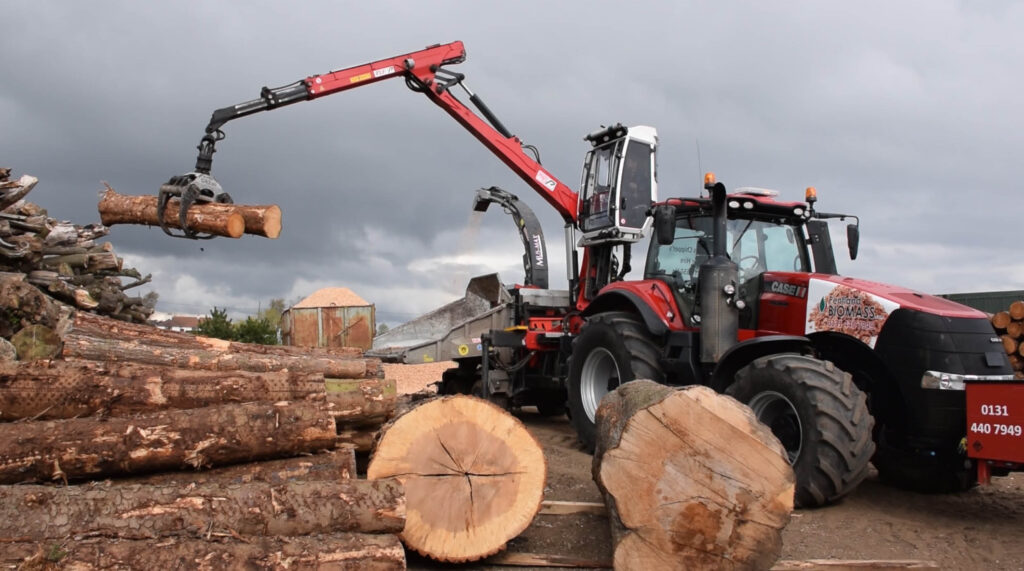
Forest Machine Magazine is written and edited by a forest professional with over 40 years hands on experience. We are dedicated to keeping you informed with all the latest news, views and reviews from our industry.
To support us you can subscribe to our bi-monthly magazine which is delivered to your door from only £30 per year.
Subscribe here
#homeoflogging #writtenbyloggersforloggers #loggingallovertheworld
-
 Issue 29£6.00
Issue 29£6.00

